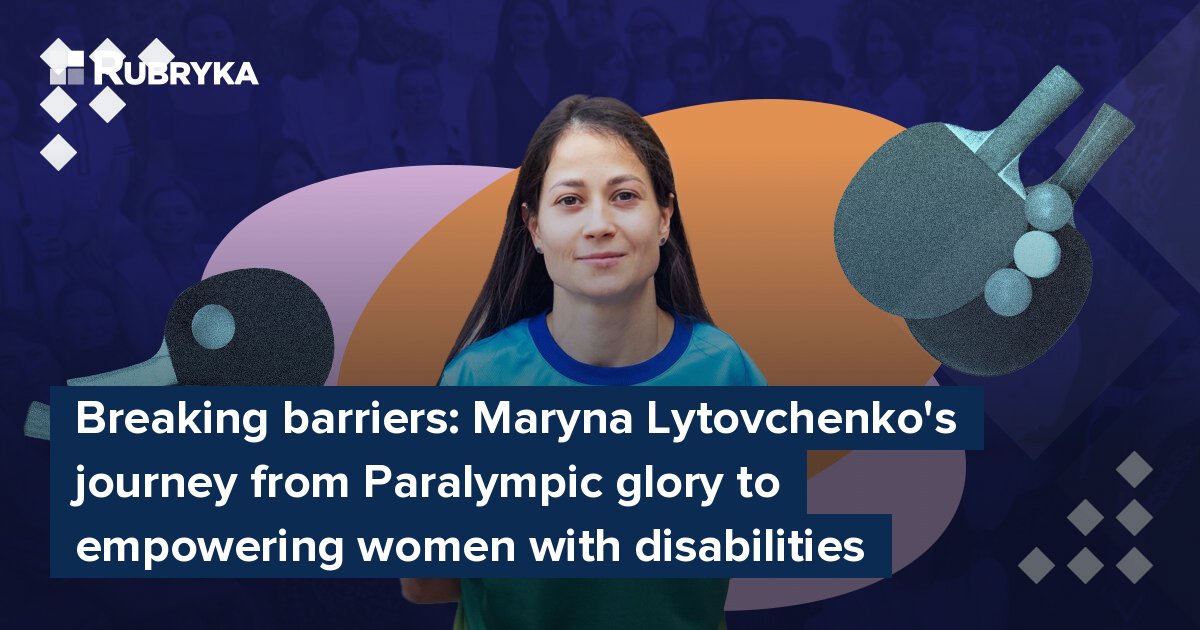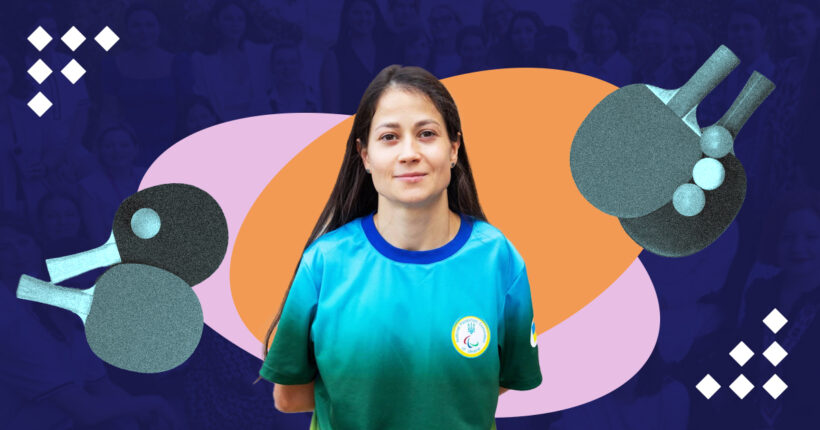
This project is led by Fight For Right with technical support from UN Women in Ukraine, funded by the UN Women's Peace and Humanitarian Fund (WPHF), a flexible and responsive tool aimed at enhancing local women's capacities in conflict prevention, crisis response, and peacebuilding.
Education, sports, and the journey to Paralympic glory
Paralympic athlete Maryna Lytovchenko, from Kyiv, began her path to success facing unique challenges due to a congenital anomaly affecting her upper and lower limbs. Growing up in the 1990s, when disability was rarely discussed, she was sent to a specialized school in the Kherson region, far from home:
"Back then, disability wasn't something people talked about openly, or even acknowledged much," Lytovchenko reflects. "In both Soviet times and after Ukraine's independence, children with disabilities were routinely sent to specialized schools. I was no exception."
She excelled in mathematics and sciences at school and even considered becoming a teacher. Yet, she feared that societal stereotypes might hinder her ambitions.
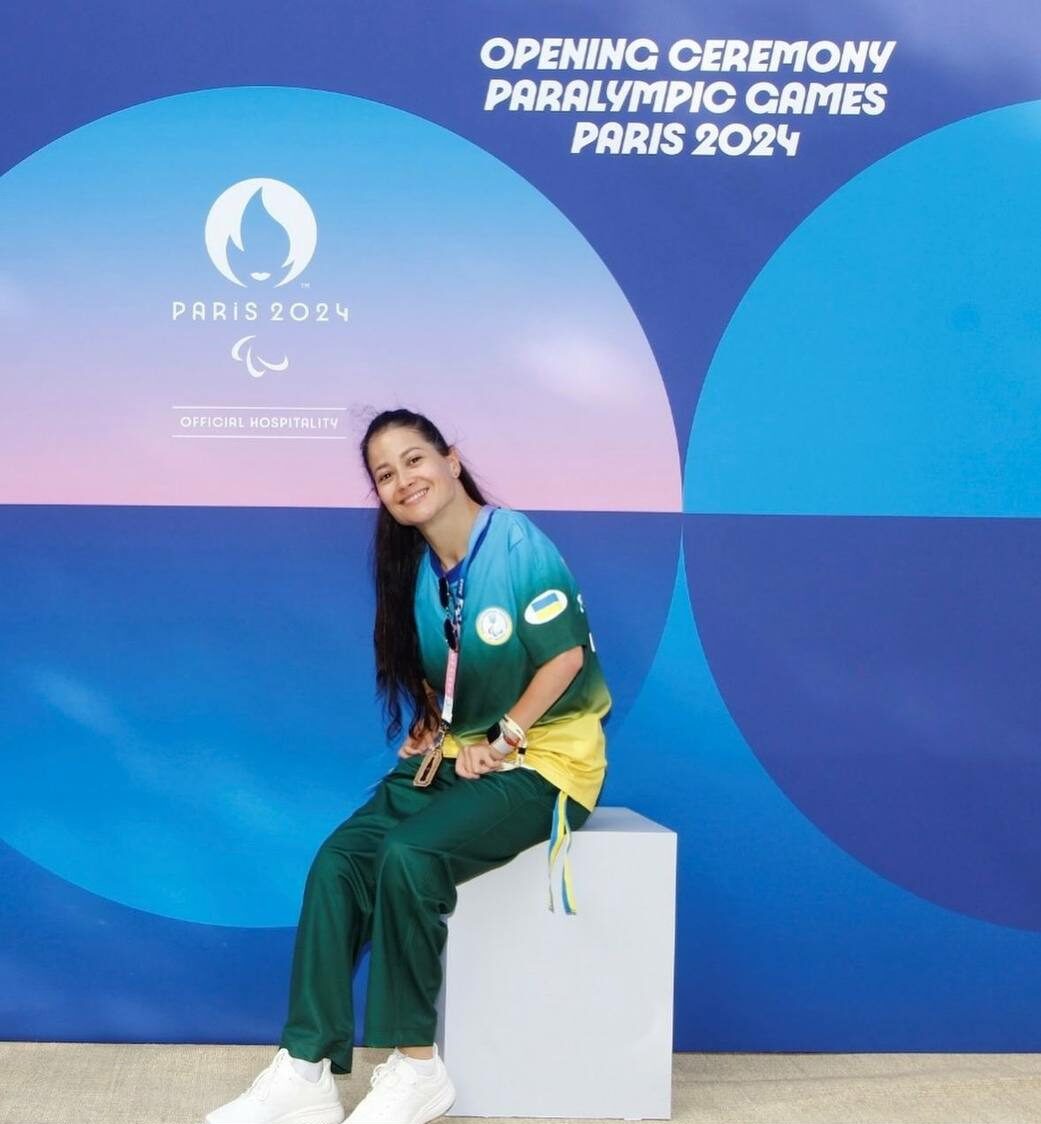
Photo from Maryna Lytovchenko's Instagram page.
After finishing school, many students like Lytovchenko faced limited options, often finding themselves directed toward residential institutions. She recalls:
"When you leave those walls, you have to think about supporting yourself, finding a place to live… Decisions were made based on disability, not knowledge. For many, if everyday barriers loomed large, boarding school was seen as the only path."
Some graduates, however, managed to pursue higher education or vocational training, and Lytovchenko was determined to be one of them, even when others doubted her:
"I didn't let others' opinions hold me back. Moving forward was the only way to discover myself and my opportunities," she shares. "I knew education was key, so I enrolled in technical school with university as my next goal."
In 2012, Lytovchenko achieved that goal, entering Kharkiv National University, where she majored in Sociology. During her studies, she began playing table tennis as a hobby, attending training sessions casually at first.
"I hadn't planned on a career in sports," she admits, "since my focus was on getting an education and finding work."
But her interest soon grew into a passion, and Lytovchenko began training professionally. She went on to win multiple national and international table tennis competitions, marking the start of her inspiring journey to the Paralympic Games.
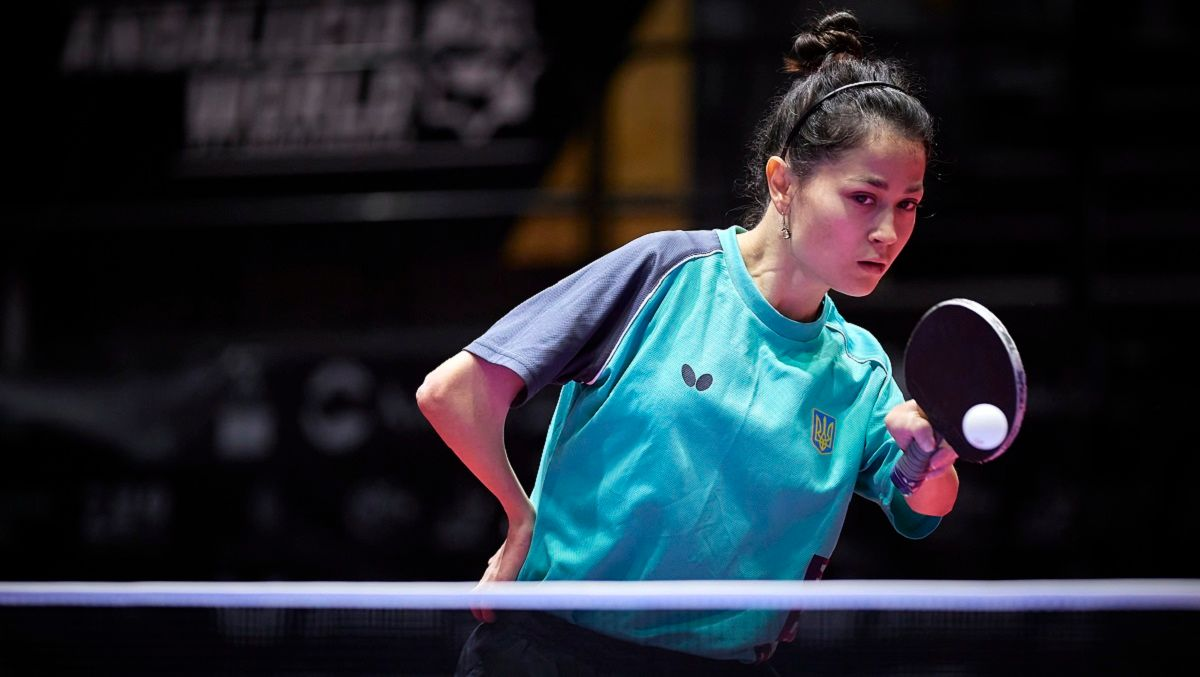
Maryna Lytovchenko. Paralympics – 2024 / Photo by Getty Images
In 2016, Lytovchenko proudly represented Ukraine in table tennis at the Paralympic Games in Rio de Janeiro, bringing home a bronze medal. By the 2020 Paralympics in Tokyo, she clinched her first gold, a victory that would later become symbolic in helping rebuild her alma mater.
Paralympic gold for university restoration
In early 2022, Lytovchenko visited Kyiv for personal matters and to see friends. When Russia launched its full-scale invasion on February 24, she was caught in the capital. Quickly deciding to evacuate, she relocated to Prague, where she continued her rigorous table tennis training and took up volunteer work.
That spring, the Russians targeted and shelled Kharkiv National University, where the athlete had studied. Deeply affected by the news, she was reminded of her Tokyo Paralympic gold medal, deciding to sell it to fundraise for restoring the university's damaged facilities:
"Education must continue, no matter what," she says passionately. "Young people deserve access to learning."
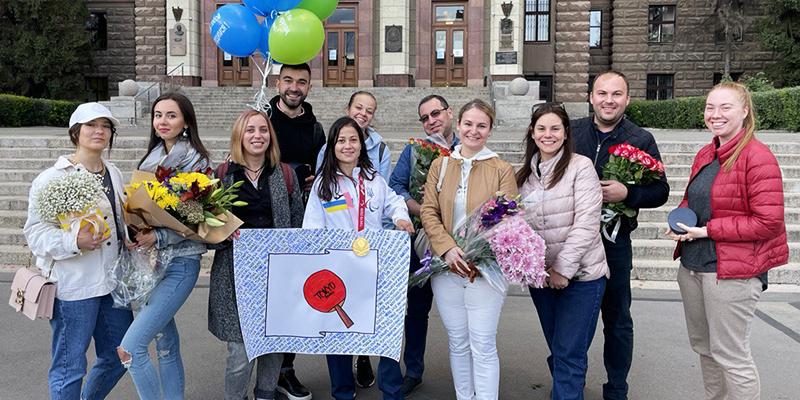
Photo from the website of the Karazin University
Lytovchenko holds a deep connection to her 2020 Paralympic gold medal, not only for its competitive value but because she won it against a Russian athlete—a victory that took on even more significance when she transformed it into a fundraiser for her war-damaged university.
While in the Czech Republic, Lytovchenko organized several charity table tennis tournaments with her former colleagues from Karazin University's sociology faculty. The sports community and supporters helped her raise over $12,000 by February 2023, which were allocated to rebuilding efforts at the university.
This past summer, she joined another fundraising effort led by her coach in Ivano-Frankivsk, aiming to install an elevator in a sports lyceum for people with disabilities. For Lytovchenko, supporting these initiatives is crucial; she believes future Paralympians deserve an accessible environment to train without barriers. Despite the challenges, Lytovchenko actively promotes the fundraiser on social media and has gathered over $4,000 so far, still short of the total needed.
If you'd like to contribute to the elevator project, you can donate through this link.
Do the impossible: The Unique Paralympics 2024
Lytovchenko's dedication to the 2024 Paralympics is a testament to resilience. Despite the challenges posed by the ongoing war, she returned to Ukraine from Prague in the spring of 2024, understanding that her most effective preparation could only be achieved with her Ukrainian coaches at home.
Lytovchenko quickly realized the difficulties of training amidst air raid alarms and the need to secure a safe space in Kyiv. Originally from Kharkiv, she had to adapt her routine to Kyiv's unpredictable environment, where finding a stable schedule was a challenge. She describes the struggle of continuing to prepare despite disrupted sleep and the ongoing search for safe, suitable locations to train.
But being home brought its own advantages, especially the deep sense of unity with her coaches and fellow athletes. "Walls help at home," the athlete says, as she adapted, finding local sparring partners to practice crucial tactical techniques. By summer, she had set up a solid routine, training twice daily with her coach, committed to representing Ukraine at the 2024 Paralympics with unwavering determination.
Lytovchenko experienced firsthand the much-praised accessibility and inclusiveness of Paris during the 2024 Paralympic Games:
"We explored the city, and everything was designed to be as accessible as possible. Most sports venues and nearly all public transportation were adapted for people with disabilities. Even though making Paris fully accessible would be challenging due to its history, they've done a remarkable job. I also loved that the logos for the Olympic and Paralympic Games were combined. It symbolizes an inclusive society, where everyone belongs."
Lytovchenko also recalls the electric atmosphere at each match, with fans packing the halls and the powerful vibrations from their foot-stomping excitement:
"When the vibrations swept through the field, I had to pause a bit to make a good serve. The hall was filled with constant applause, and you could feel the support from every corner."
All her intense training had paid off, and the athlete represented Ukraine with pride, bringing home a "silver" medal:
"I know what it's like to be 'first' and 'third,' and now I've experienced what it's like to be 'second.' It's an incredible journey with such unique emotions."
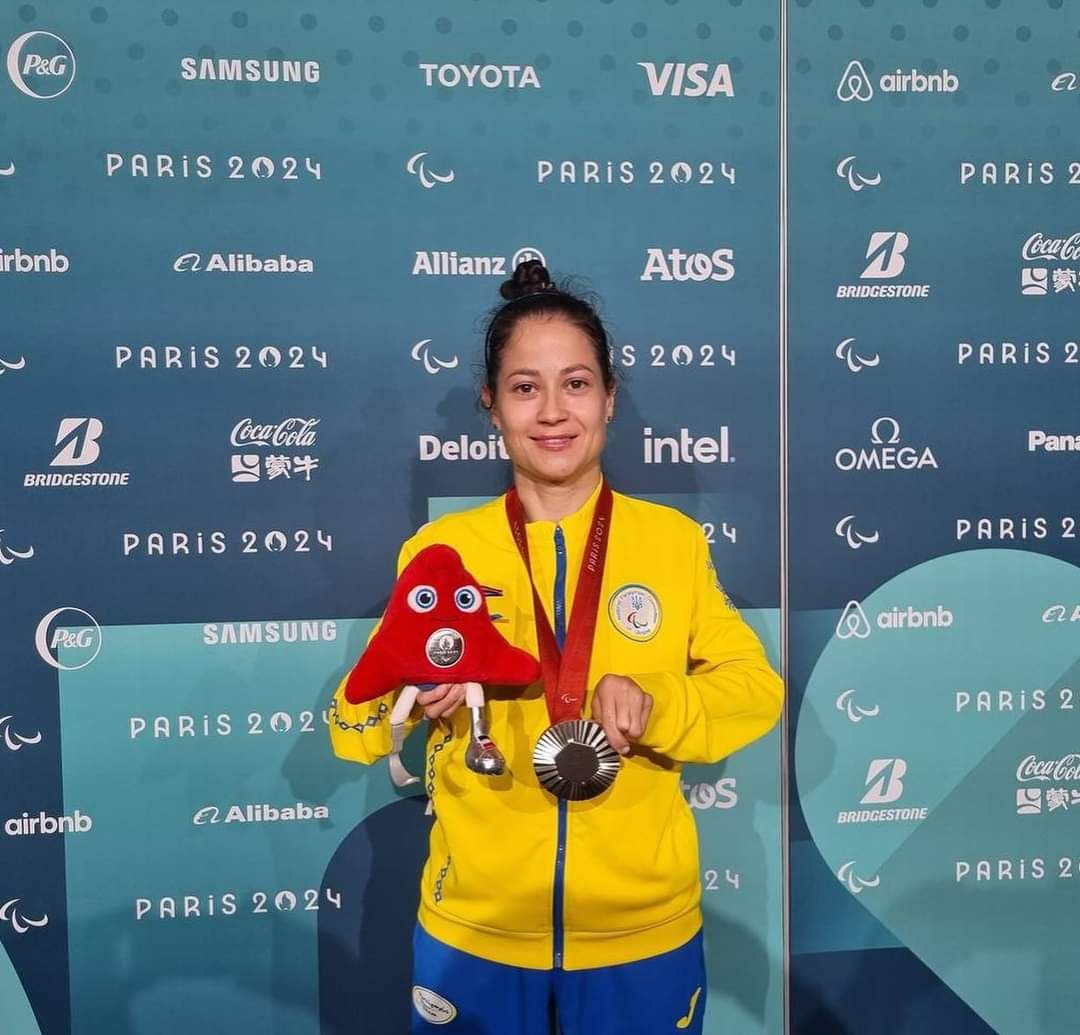
Photo from Maryna Lytovchenko's Facebook page.
Upon her return to Kyiv, Lytovchenko was honored with the Order of Princess Olga, 1st degree, in recognition of her remarkable sports achievements. She shared the news with her followers on Instagram, writing:
"This is not only a personal victory but also a testament to years of hard work, the unwavering support of my family, coaches, and the entire team. It's an accomplishment I am extremely proud of, and one that fuels my drive for future victories."
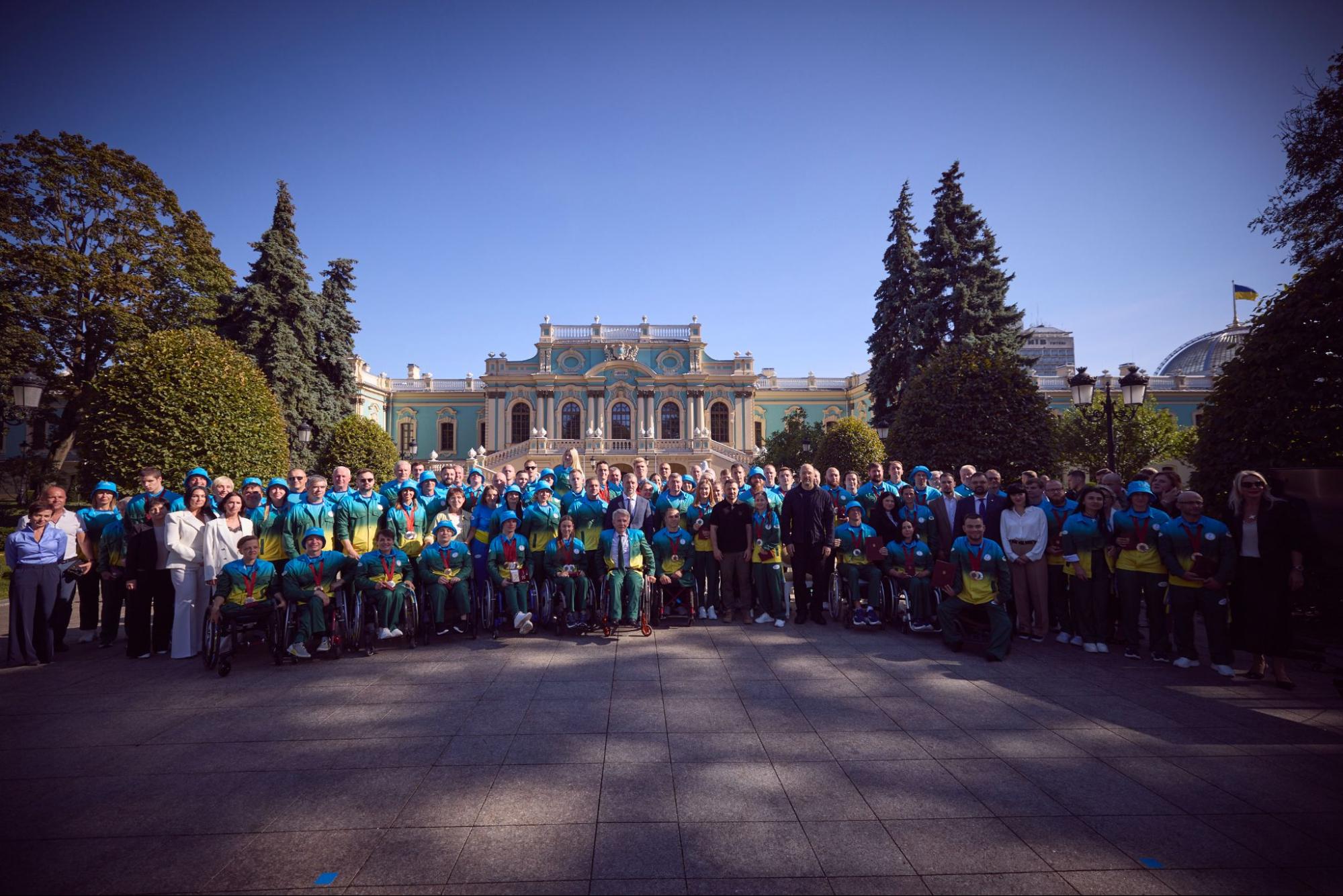
Photo from the official website of the President of Ukraine.
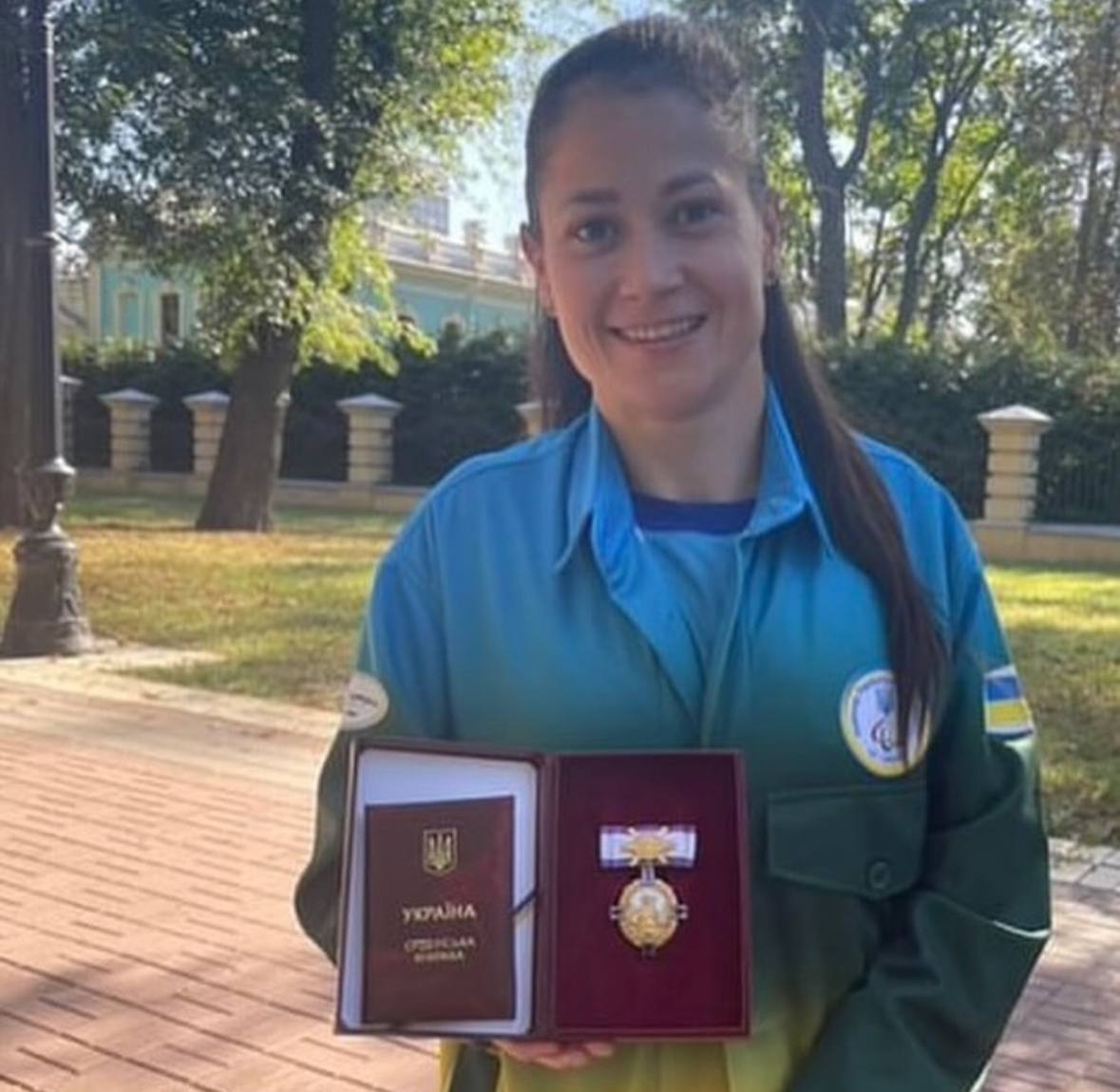
Photo from Maryna Lytovchenko's Instagram page.
The greatest strength is speaking up and not being afraid to defend your rights
Currently, Lytovchenko is pursuing postgraduate studies at Kharkiv National Pedagogical University named after H. S. Skovoroda. Her research focuses on developing practical recommendations for coaches working with Paralympic athletes. She not only writes academic materials but also serves as an expert in various trainings. Lytovchenko highlights the constant challenges and stereotypes faced by people with disabilities, especially women and girls:
"The knowledge I have, and that my colleagues have, helps in fighting discrimination and addressing inaccessibility. In sports, accessibility has been a priority for years, ensuring that everyone can maintain their physical health. Understanding our legal rights to a dignified life and equal opportunities gives confidence and motivation to stand up for ourselves."
For Lytovchenko, true strength lies in speaking up and defending one's rights, unafraid to seek help when needed. She believes that only through collective effort can we "win" and contribute meaningfully to the development and history of Ukraine.
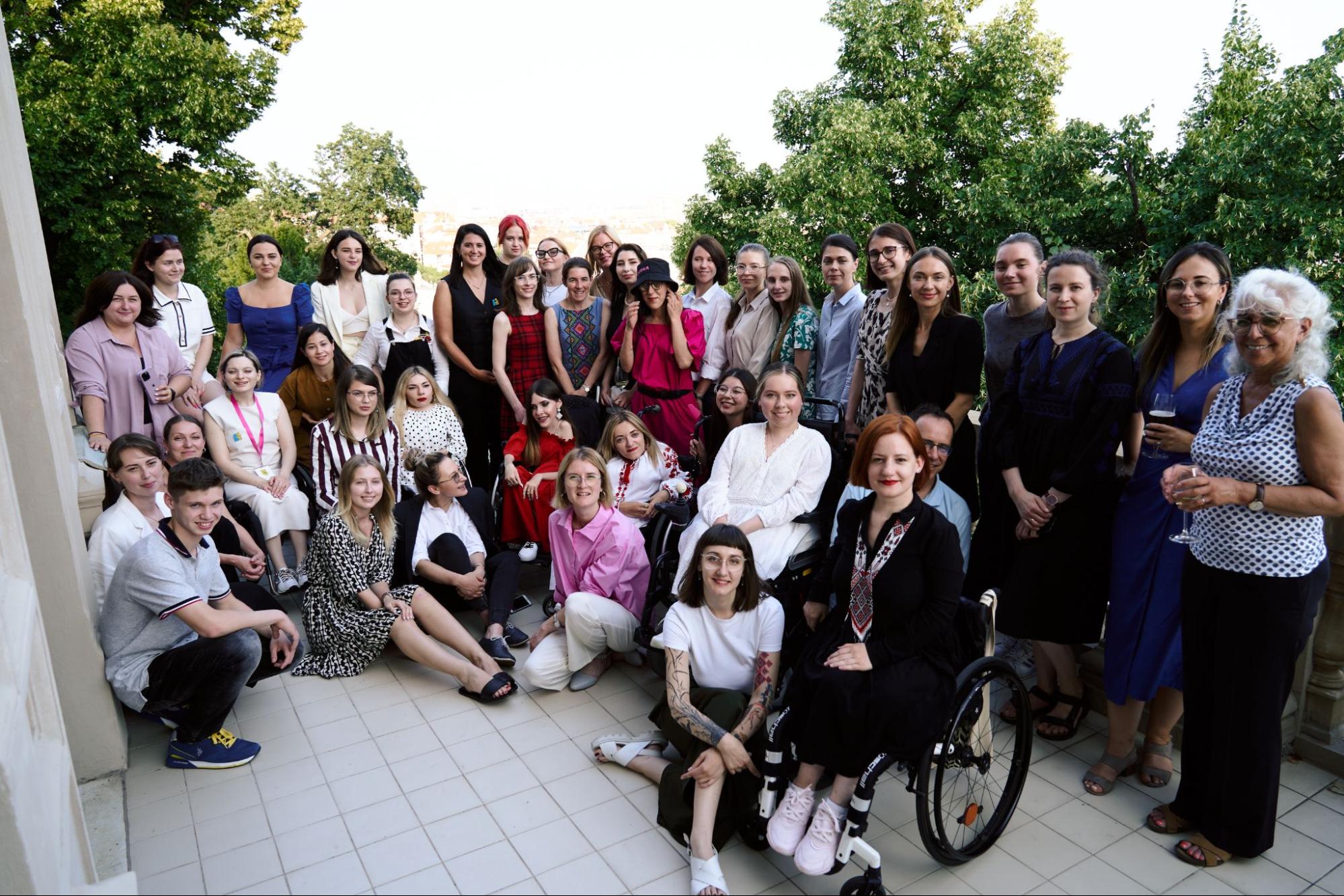
Maryna Lytovchenko during the political participation school for women with disabilities Liderka from Fight For Right in Prague / Photo: Fight For Right
Lytovchenko plans to renew her commitment to social initiatives and hopes to collaborate further with Fight For Right. Reflecting on her experience with their program, she shared:
"I am very glad to have been part of the Liderka school for women with disabilities. Now, watching other graduates on social media, I see the incredible contributions that women with disabilities are making to integrate our community fully into state-building and reconstruction processes."
Fight For Right celebrates these achievements, noting how graduates of Liderka have become bolder, more determined, and more visible in society. Each day, these women prove that their dreams and ideas can translate into impactful changes. Their leadership inspires others, dismantling stereotypes and setting an example for overcoming barriers in pursuit of ambitious goals.
Author: Valeriia Lukash, SMM manager of the NGO Fight For Right


